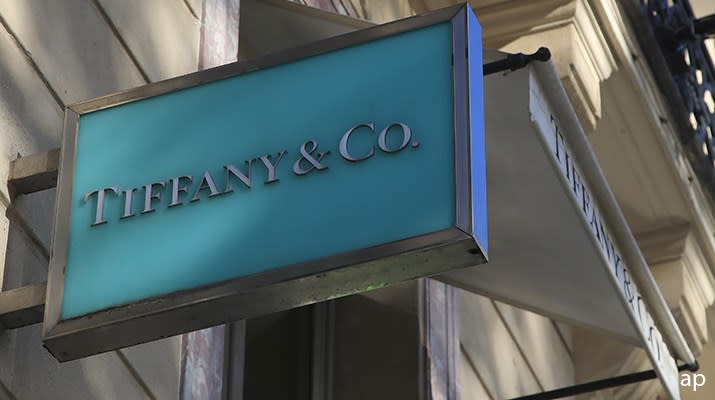LVMH to Buy Tiffany After Raising Offer

Louis Vuitton owner LVMH (MC), the world’s largest luxury brand, is to buy US firm Tiffany (TIF) for $16 billion, a month after the bid was first announced.
Paris-listed LVMH shares rose 1.5% to 402 euros, while US-listed Tiffany surged nearly 6% to $132, having already spiked when the deal was announced in October.
The LVMH bid was worth $14.5 billion last month, or $120 per share, but that has now been raised to $135 per share.
Morningstar raised its fair value estimate for Tiffany to $135 after the deal was announced but the deal is not expected to have an impact on the analysts' valuation for LVMH.
Luxury analyst Jelena Sokolova says the price paid for for Tiffany is steep: "The high price paid underscores the scarcity of established fine jewellery brands in the market and high entry barriers to this industry, in our opinion."
While Sokolova says that Tiffany is “one of few global iconic jewellery brands”, its profit margin growth would need to be higher to justify the valuation implied by the LVMH deal. The current operating profit margin of 18% would need to push higher to 25% in this case.
She adds that Tiffany is expected to operate as a standalone in the LVMH group, but will benefit from better negotiating terms with landlords, as well as pooling R&D resources.
Tiffany, which dates back to 1837, has a “wide” economic moat, or sustainable competitive advantage, Sokolova says: “Tiffany’s brand equity is supported by iconic and long-lived collections, instantly recognisable blue boxes, and the ‘Tiffany blue’ colour.”
“Although the quality of locations can vary, with around 300 stores, Tiffany is on par with Cartier and Hermes, arguably the most exclusive among big luxury brands,” she adds.
Sokolova also says that store openings, refurbishments and brand building exercises will be needed if Tiffany is to unlock its growth potential.
Luxury sector valuations have been under pressure in recent years from a variety of challenges, including a slowdown in global growth and a crackdown on luxury gifts among Chinese officials.
Some analysts believe these fears have given opportunities for investors to gain exposure to the Asian growth story.
Lindsell Train Global Equity fund manager bought into Italian fashion chain Prada in September. The manager of the Silver-rated fund, Michael Lindsell, says “the company is uniquely positioned with its high sales exposure to China and other Asian countries”.

 Yahoo Finance
Yahoo Finance 